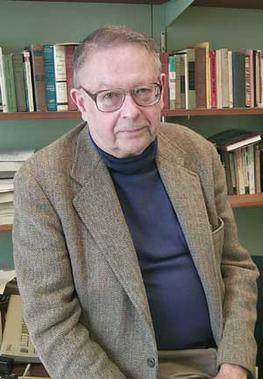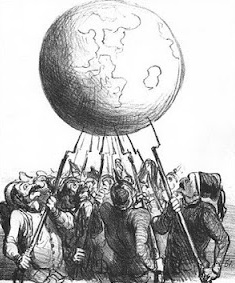Pax Americana is a term applied to the concept of relative peace in the Western Hemisphere and later in the world after the end of World War II in 1945, when the United States became the world's dominant economic, cultural, and military power.

Hegemony is the political, economic, and military predominance of one state over other states, either regional or global.
In politics, hard power is the use of military and economic means to influence the behavior or interests of other political bodies. This form of political power is often aggressive (coercion), and is most immediately effective when imposed by one political body upon another of less military and/or economic power. Hard power contrasts with soft power, which comes from diplomacy, culture and history.
In international relations, power is defined in several different ways. Material definitions of state power emphasize economic and military power. Other definitions of power emphasize the ability to structure and constitute the nature of social relations between actors. Power is an attribute of particular actors in their interactions, as well as a social process that constitutes the social identities and capacities of actors.
The term "new world order" refers to a new period of history evidencing dramatic change in world political thought and the balance of power in international relations. Despite varied interpretations of this term, it is commonly associated with the notion of world governance.
Grand strategy or high strategy is a state's strategy of how means can be used to advance and achieve national interests in the long-term. Issues of grand strategy typically include the choice of military doctrine, force structure and alliances, as well as economic relations, diplomatic behavior, and methods to extract or mobilize resources.
In international relations, the concept of balancing derives from the balance of power theory, the most influential theory from the realist school of thought, which assumes that a formation of hegemony in a multistate system is unattainable since hegemony is perceived as a threat by other states, causing them to engage in balancing against a potential hegemon.

Kenneth Neal Waltz was an American political scientist who was a member of the faculty at both the University of California, Berkeley and Columbia University and one of the most prominent scholars in the field of international relations. He was a veteran of both World War II and the Korean War.
Hegemonic stability theory (HST) is a theory of international relations, rooted in research from the fields of political science, economics, and history. HST indicates that the international system is more likely to remain stable when a single state is the dominant world power, or hegemon. Thus, the end of hegemony diminishes the stability of the international system. As evidence for the stability of hegemony, proponents of HST frequently point to the Pax Britannica and Pax Americana, as well as the instability prior to World War I and the instability of the interwar period.
Stephen Gallup Brooks is a Professor of Government in the Department of Government at Dartmouth College.

Realism, a school of thought in international relations theory, is a theoretical framework that views world politics as an enduring competition among self-interested states vying for power and positioning within an anarchic global system devoid of a centralized authority. It centers on states as rational primary actors navigating a system shaped by power politics, national interest, and a pursuit of security and self-preservation.
Polarity in international relations is any of the various ways in which power is distributed within the international system. It describes the nature of the international system at any given period of time. One generally distinguishes three types of systems: unipolarity, bipolarity, and multipolarity for three or more centers of power. The type of system is completely dependent on the distribution of power and influence of states in a region or globally.

Gilford John Ikenberry is a theorist of international relations and United States foreign policy, and the Albert G. Milbank Professor of Politics and International Affairs at Princeton University. He is known for his work on liberal International Relations theory, such as the books After Victory (2001) and Liberal Leviathan (2011). He has been described as "the world's leading scholar of the liberal international order."

The balance of power theory in international relations suggests that states may secure their survival by preventing any one state from gaining enough military power to dominate all others. If one state becomes much stronger, the theory predicts it will take advantage of its weaker neighbors, thereby driving them to unite in a defensive coalition. Some realists maintain that a balance-of-power system is more stable than one with a dominant state, as aggression is unprofitable when there is equilibrium of power between rival coalitions.

William Curti Wohlforth is the Daniel Webster Professor of Government in the Dartmouth College Department of Government, of which he was chair for three academic years (2006-2009). Wohlforth was Editor-in-chief of Security Studies from 2008 to 2011. He is linked to the Neoclassical realism school and known for his work on American unipolarity.
Defensive neorealism is a structural theory in international relations that is derived from the school of neorealism. The theory finds its foundation in the political scientist Kenneth Waltz's Theory of International Politics in which Waltz argues that the anarchical structure of the international system encourages states to maintain moderate and reserved policies to attain national security. In contrast, offensive realism assumes that states seek to maximize their power and influence to achieve security through domination and hegemony. Defensive neorealism asserts that aggressive expansion as promoted by offensive neorealists upsets the tendency of states to conform to the balance of power theory, thereby decreasing the primary objective of the state, which they argue to be the ensuring of its security. Defensive realism denies neither the reality of interstate conflict or that incentives for state expansion exist, but it contends that those incentives are sporadic, rather than endemic. Defensive neorealism points towards "structural modifiers," such as the security dilemma and geography, and elite beliefs and perceptions to explain the outbreak of conflict.

Randall L. Schweller is Professor of Political Science at the Ohio State University, where he has taught since 1994. He is a current member of the International Security editorial board and former Editor-in-Chief of the journal Security Studies.

Russia–Venezuela relations include cooperation between Russia and Venezuela in areas of common concern, such as their common status as oil exporters, and policy toward the United States. Venezuela is Russia's most important trading and military ally in Latin America. Russia recognizes Nicolás Maduro as the president of Venezuela, instead of Juan Guaidó, in the Venezuelan presidential crisis.
In international relations, the term smart power refers to the combination of hard power and soft power strategies. It is defined by the Center for Strategic and International Studies as "an approach that underscores the necessity of a strong military, but also invests heavily in alliances, partnerships, and institutions of all levels to expand one's influence and establish legitimacy of one's action."
The balance of threat theory was proposed by Stephen Walt in his article Alliance Formation and the Balance of World Power, published in the journal International Security in 1985. It was later further elaborated in his book The Origins of Alliances (1987). The theory modified the popular balance of power theory in the neorealist school of international relations.







